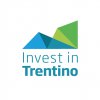
Agritech, sharing economy, biotechnology, the digitalisation of education, information security, and quantum technology - these and many others are the operating sectors of the 19 start-up businesses participating in the third edition of the Trentino Start-up Valley, the acceleration program introduced by Trentino Sviluppo and Fondazione Hit – Hub Innovazione Trentino and dedicated to new Italian entrepreneurial concepts with major innovative content. The first phase of the acceleration process, known as the Bootstrap, will conclude at the end of May with the Demo Day, consisting in a significant moment of confrontation with a jury representing the world of mentors and business angels. The teams that successfully pass this barrier test will progress to the second phase of Trentino Start-up Valley, called Validation, where a pool of dedicated coaches and a new series of customised sessions will help them launch their prototype, product or service onto the market.
The start-up businesses
The teams have been selected for their scalability, innovativeness and relevance to the new smart specialisation guidelines of the Autonomous Province of Trento (Smart Specialisation Strategy - S3), out of a pool of over 40 candidates from all over Italy; 32% of them are fronted by women and 80% of them have been trained in research centres based in Trentino, specifically:
-
The Bruno Kessler Foundation
-
The Centre for Mind/Brain Sciences (Cimec)
-
The Department of Industrial Engineering (Unitrento)
-
The Department of Cellular, Computational and Integrated Biology (Cibio - Unitrento)
-
The Department of Physics (Unitrento)
-
The Department of Economics and Management (Unitrento).
Among the varied business concepts that the teams are aiming to introduce into the market we find a digital system to support pupils with dyscalculia, a custom-made post-operative bra for women that have undergone mastectomy, a kit for the safe removal of tattoos, new tools for farmers, saliva tests for early detection of infectious diseases, exoskeletons and robotic arms to improve the quality of life of people with disabilities, and an insect farm to combat malnutrition.
The first phase of the journey: the Bootstrap
After having addressed, together with dedicated experts and tutors, themes such as value proposition, market analysis and target market definition, communication and customer acquisition strategies, revenue models, business model canvas, establishment of the company and activity sustainability, in this second half of the Bootstrap the teams - including a total of 70 researchers and innovators - will investigate a number of legal and financial aspects, such as the issues related to intellectual property, fundraising, financial and business planning.






